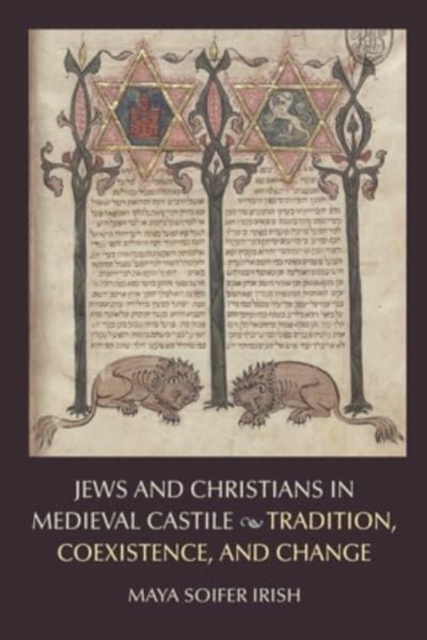Jews and Christians in Medieval Castile: Tradition, Coexistence, and Change

Jews and Christians in Medieval Castile: Tradition, Coexistence, and Change
Jews and Christians in Medieval Castile examines the changes in Jewish-Christian relations in the Iberian kingdom of Castile during the pivotal period of the reconquest and the hundred years that followed the end of its most active phase (eleventh to mid-fourteenth century). The study's focus on the Christian heartland north of the Duero River, known as Old Castile, allows for a detailed investigation of the Jews' changing relations with the area's main power players-the monarchy, the church, and the towns. In a departure from previous assessments, Soifer Irish shows that the institutional and legal norms of toleration for the Jewish minority were forged not along the military frontier with Islam, but in the north of Castile. She argues that the Jews' relationship with the Castilian monarchy was by far the most significant factor that influenced their situation in the kingdom, but also demonstrates that this relationship was inherently problematic. Although during the early centuries of Christian expansion the Jewish communities benefited from a strong royal power, after about 1250 helping maintain it proved to be costly to the Jewish communities in economic and human terms. Soifer Irish demonstrates that while some Castilian clergymen were vehemently anti-Jewish, the Castilian Church as a whole never developed a coordinated strategy on the Jews, or even showed much interest in the issue. The opposite is true about the townsmen, whose relations with their Jewish neighbors vacillated between cooperation and conflict. In the late thirteenth century, the Crown's heavy-handed tactics in enforcing the collection of outstanding debts to Jewish moneylenders led to the breakdown in the negotiations between the Jewish and Christian communities, creating a fertile ground for the formation of an anti-Jewish discourse in Castilian towns. Soifer Irish also examines the Jews' attitudes toward the various powers in the Christian society and shows that they were active players in the kingdom's politics. Jews and Christians in Medieval Castile breaks new ground in helping us understand more fully the tensions, and commonalities, between groups of different faiths in the late medieval period.
PRP: 343.09 Lei
Acesta este Prețul Recomandat de Producător. Prețul de vânzare al produsului este afișat mai jos.
308.78Lei
308.78Lei
343.09 LeiIndisponibil
Descrierea produsului
Jews and Christians in Medieval Castile examines the changes in Jewish-Christian relations in the Iberian kingdom of Castile during the pivotal period of the reconquest and the hundred years that followed the end of its most active phase (eleventh to mid-fourteenth century). The study's focus on the Christian heartland north of the Duero River, known as Old Castile, allows for a detailed investigation of the Jews' changing relations with the area's main power players-the monarchy, the church, and the towns. In a departure from previous assessments, Soifer Irish shows that the institutional and legal norms of toleration for the Jewish minority were forged not along the military frontier with Islam, but in the north of Castile. She argues that the Jews' relationship with the Castilian monarchy was by far the most significant factor that influenced their situation in the kingdom, but also demonstrates that this relationship was inherently problematic. Although during the early centuries of Christian expansion the Jewish communities benefited from a strong royal power, after about 1250 helping maintain it proved to be costly to the Jewish communities in economic and human terms. Soifer Irish demonstrates that while some Castilian clergymen were vehemently anti-Jewish, the Castilian Church as a whole never developed a coordinated strategy on the Jews, or even showed much interest in the issue. The opposite is true about the townsmen, whose relations with their Jewish neighbors vacillated between cooperation and conflict. In the late thirteenth century, the Crown's heavy-handed tactics in enforcing the collection of outstanding debts to Jewish moneylenders led to the breakdown in the negotiations between the Jewish and Christian communities, creating a fertile ground for the formation of an anti-Jewish discourse in Castilian towns. Soifer Irish also examines the Jews' attitudes toward the various powers in the Christian society and shows that they were active players in the kingdom's politics. Jews and Christians in Medieval Castile breaks new ground in helping us understand more fully the tensions, and commonalities, between groups of different faiths in the late medieval period.
Detaliile produsului









